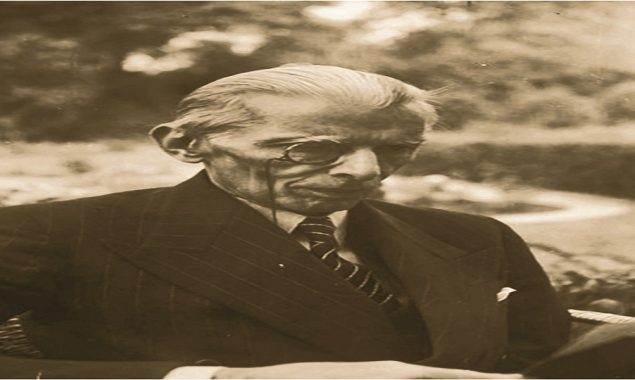A tribute to Quaid-i-Azam
Of all the great men that I have known in my life...

Creating history
Quaid-i-Azam Mohammad Ali Jinnah was a luminary in three walks of life. He was one of India’s leading legal practitioners; he was one of India’s leading legislators; and he was one of India’s leading politicians. But it is as a politician that he attained world stature and won a permanent place in history. He not only won independence for an existing country, but also performed the extraordinary feat of bringing an altogether new independent country into existence against seemingly impossible odds.
His triumph had the appearance of a one-man achievement because he was the only Muslim leader who could politically get the better of leaders of the calibre of Nehru, Gandhi, and Mountbatten who were all bitterly opposed to the creation of Pakistan. But even Jinnah’s brilliant advocacy would have been dismissed as hot air if it did not have the passionate backing of the Muslim masses. His opponents realized that the denial of Pakistan would cause the explosive situation to blow up and make a constitutionally viable transfer of power impossible. Thus, in fact, it was not Jinnah alone but Jinnah plus the Muslim masses who jointly won Pakistan.
Some commentators have suggested that the Quaid was too westernized to conceive Pakistan as an Islamic state. To support their argument they usually cite his address to the inaugural session of the Pakistan Constituent Assembly on 11 August 1947:
…You may belong to any religion or caste or creed—that has nothing to do with the business of the State… We are starting with this fundamental principle that we are all citizens and equal citizens of one State… We would keep that in front of us as our ideal and you
will find that in due course of time Hindus would cease to be Hindus and Muslims would cease to be Muslims, not in the religious sense, because that is the personal faith of each individual, but in the political sense as citizens of the State.1
However, when this statement is read with the Quaid’s other pronouncements it becomes quite clear that he was recommending generous treatment to non-Muslims not as a commendable secular principle but as a mandatory Islamic injunction. Only three days later, during the Transfer of Power ceremony on 14 August, when Mountbatten praised the Emperor Akbar’s policy of political and religious tolerance, the Quaid pointed out:
The tolerance and goodwill that the Emperor Akbar showed to all the non-Muslims is not of recent origin. It dates back thirteen centuries ago when our Prophet (PBUH) not only by words but by deeds treated the Jews and Christians, after he had conquered them, with the utmost tolerance and regard and respect for their faith and beliefs.2
In fact, Jinnah had already emphasized in an Eid message on 13 November 1939 that ‘no injunction is considered by our Holy Prophet (PBUH) more imperative, or more divinely binding than the devout but supreme realization of our duty of love and toleration towards all human beings’. In another Eid message in September 1945 he had pointed out:
The Quran is the general code of the Muslims. A religious, social, civil, commercial, military, judicial, criminal, penal code; it regulates everything from the ceremonies of religion to those of daily life; from the salvation of the soul to the health of the body; from the rights of all to those of each individual; from morality to crime, from punishment here to that in the life to come, and our Prophet [PBUH] has enjoined on us that every Mussulman should possess a copy of the Quran and be his own priest. Therefore, Islam is not merely confined to the spiritual tenets and doctrines or rituals and ceremonies. It is a complete code regulating the whole Muslim society, every department of life, collective and individual.
Catch all the Pakistan News, Breaking News Event and Latest News Updates on The BOL News
Download The BOL News App to get the Daily News Update & Follow us on Google News.